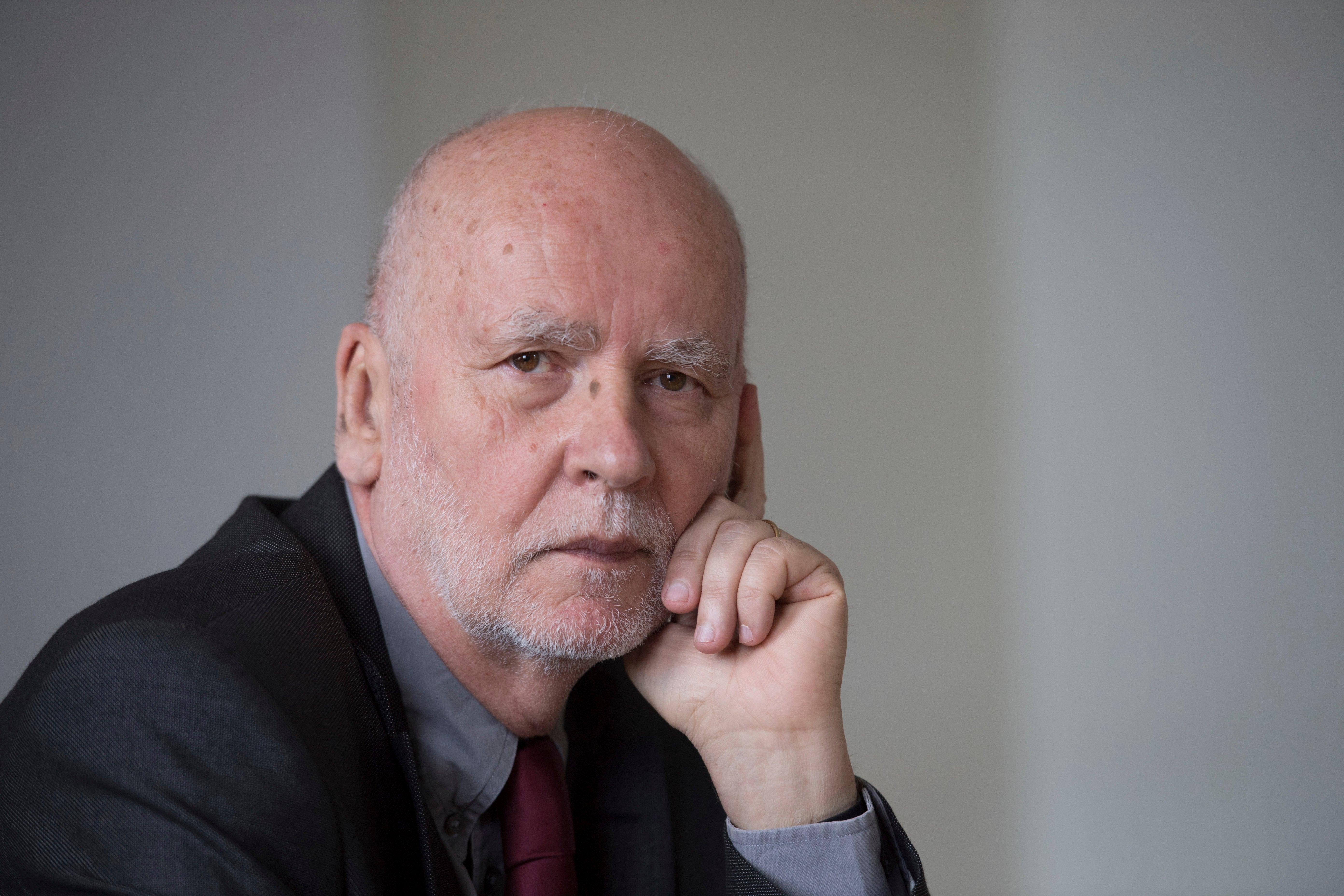Acclaimed Polish poet Adam Zagajewski dies at age 75
One of Poland’s greatest poets, Adam Zagajewski, who wrote a poem that came to symbolize the world’s sense of shock and loss after the Sept. 11 attacks in the United States, has died in Krakow

Your support helps us to tell the story
From reproductive rights to climate change to Big Tech, The Independent is on the ground when the story is developing. Whether it's investigating the financials of Elon Musk's pro-Trump PAC or producing our latest documentary, 'The A Word', which shines a light on the American women fighting for reproductive rights, we know how important it is to parse out the facts from the messaging.
At such a critical moment in US history, we need reporters on the ground. Your donation allows us to keep sending journalists to speak to both sides of the story.
The Independent is trusted by Americans across the entire political spectrum. And unlike many other quality news outlets, we choose not to lock Americans out of our reporting and analysis with paywalls. We believe quality journalism should be available to everyone, paid for by those who can afford it.
Your support makes all the difference.Adam Zagajewski, one of Poland’s greatest poets who wrote a poem that came to symbolize the world's sense of shock and loss after the Sept. 11 attacks in the United States, has died in Krakow He was 75.
Zagajewski's death on Sunday, which was UNESCO's World Poetry Day, was confirmed by publisher Krystyna Krynicka of the a5 publishing house. No cause of death was given.
Zagajewski's poem “Try to Praise the Mutilated World” that tenderly looks back at things and moments gone was published in the New Yorker magazine just days after the Sept. 11 attacks and became representative for the outpouring of grief around the world.
He used to say that what interested him the most was the intertwining of the “historic world with the cosmic world that is static, or rather moves in a totally different rhythm."
“These worlds fight but also complete each other — and that is really worthy of deep reflection,” he said in an interview.
He taught poetry workshops at Krakow's Jagiellonian University, as well as creative writing at the University of Houston. He was also a faculty member at the University of Chicago.
Media in Sweden said he was repeatedly mentioned among candidates for the Nobel Prize in literature.
Poland's Nobel-winning author Olga Tokarczuk said that students “adored him because he was especially gifted for poetry, he knew how to talk about it.” She said he would read verse with “special, ceremonial intonation that is due only to poetry.”
Polish President Andrzej Duda tweeted that Zagajewski's death was “sad news and a big loss to Poland's literature.”
Zagajewski was a leading figure in Poland’s New Wave, or Generation '68, literary movement of the late 1960s that called for a simple language to relate directly to reality. It was a reaction to pompous poetry praising life under the communist system.
Zagajewski and fellow-poet Julian Kornhauser authored a book that became the movement's manifesto. Kornahuser's daughter, Agata Kornhauser-Duda is now Poland's first lady.
Zagajewski's works were banned in 1975 by Poland's communist authorities of the time after he signed a protest by 59 intellectuals against ideological changes to the Polish Constitution that pledged unbreakable alliance with the Soviet Union and the leading role of the Communist Party.
He emigrated to Paris in 1982, but returned to Poland in 2002 and lived in Krakow.
He won many literary awards, including the 2004 Neustadt International Prize for Literature, considered a forerunner to the Nobel Prize in Literature, and the 2017 Princess of Asturias Award, the Spanish-speaking world's top humanities award.
He was awarded a number of Polish state distinctions and France's Legion of Honor in 2016.
Zagajewski was born in June 1945 in Lwow, now Lviv in Ukraine. That same year his family had to move west, to central Poland, as borders were shifted following World War II and the city became part of the Soviet Union.
He studied psychology and philosophy at Jagiellonian University.